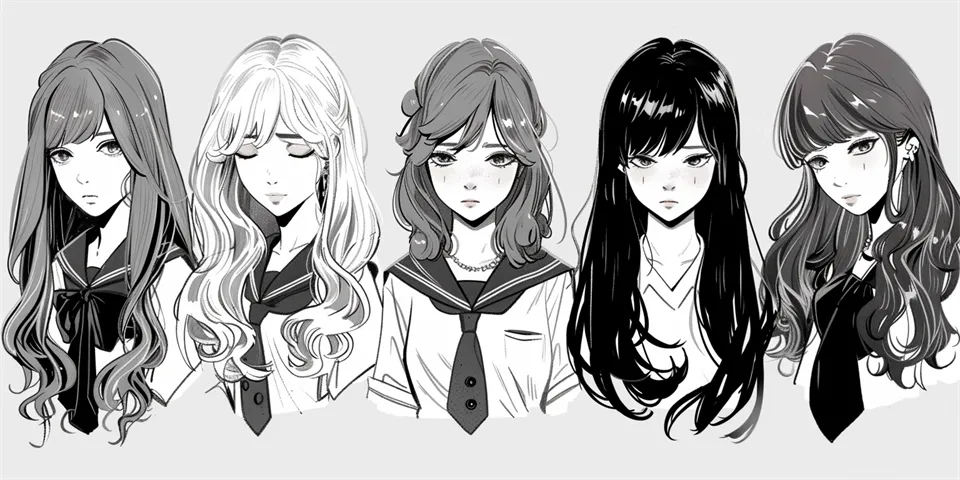What copyright do you use for fanfiction
Fanfiction, the realm of creativity where fans can freely engage with their favorite characters and universes outside the constraints of the original work, has been increasing in popularity over the past few years. But it's crucial to understand that fanfiction treads on a delicate topic: copyright. We're going to delve into the copyright issue of fanfiction, examining it from a holistic perspective. Here, we will uncover the complexities behind what kind of copyright users apply to a piece of fanfiction.
Understanding Copyright
Before we dive in, it's important to get a grip on what we mean by 'copyright'. In a nutshell, it refers to the rights a creator has over their work - this stretches to include exclusive reproduction, distribution, and modification rights. When a person pens a story, paints a picture or writes a song, they automatically own the copyright to that original creation.

However, when it comes to fanfiction, these boundaries can blur - after all, the characters, settings, and often even plotlines driven from the original work are not the fanfiction writer’s own.
Legal Aspects of Fanfiction
Fanfiction operates in a legal gray area. Technically speaking, by using characters and situations without the original creator’s permission, fanfiction could be considered copyright infringement. This is because copyright law, which protects original works of authorship, grants the copyright holder the exclusive right to create derivative works.
However, most publication of fanfiction goes unchallenged by copyright holders mainly because pursuing legal action against fanfiction writers is expensive, time consuming, and might even damage their relationship with fans. Plus, many believe fanfiction enhances a fan community and might even help boost the popularity and sales of the original work.
Why Fanfiction is Generally Tolerated
The fan content sphere—including fanfiction, fan art, and fan films—also contributes to extending the lifespan of literary and media franchises, which often encourages creators to tolerate or even appreciate fan creations. Moreover, fan creations can act as a barometer for what aspects of the original work are resonating with fans, providing valuable feedback for creators.
Many creators, rather than treating fanfiction as an infringement of their copyright, see it as a form of free advertising or flattery. They understand that by inspiring such passion in fans that they want to continue the story in their own words, they've succeeded in the ultimate aim of storytelling: to create something that resonates with people and inspires them to imagine.
Fair Use and Fanfiction
Fanfiction can also fall under the umbrella of 'fair use,' a clause in copyright law that allows limited use of copyrighted material without requiring permission from the copyright holders. This typically applies to uses for criticism, news reporting, teaching, and research.
In relation to fanfiction, the argument for fair use hinges on transformative work—the idea that the fan creation adds something new or different to the original with a further purpose or different character. However, the fair use defense is generally decided on a case-by-case basis in court, and each judicial decision does not necessarily set a consistent precedent.
The Role of Fanfiction Websites
Websites like FanFiction.Net and Archive of Our Own (AO3) play a significant role in the issue of copyright in fanfiction. These websites host millions of works from hundreds of fandoms with various disclaimers on author notes before each work stating that the author doesn’t not own the characters, merely borrowing them for the duration of their fanfic.
While none of these disclaimers is a legal shield, they express the fanfic community’s understanding and respect for copyright issues. They acknowledge that the characters don't belong to them and they are not seeking to profit from their stories.
Conclusion
The issue of copyright in fanfiction is highly complex and can spark heated debates among creators, fans, and legal professionals. What’s clear however, is that despite existing in a somewhat legal gray area, fanfiction continues to thrive and offer fans a space for creativity and enjoyment.
FAQs
Q: Is all fanfiction illegal? A: Not necessarily. While certain aspects of fanfiction may technically infringe on copyright laws, many creators tolerate—or even encourage—fanfiction because it expands their fandom and can bring attention to their original work.
Q: Can I get sued for writing fanfiction? A: It's highly unlikely, but theoretically possible. However, because the process of taking legal action is costly and time-consuming, it's rare for individual fanfiction writers to be sued by original creators.
Q: Can fanfiction be considered fair use? A: Possibly. Fair use allows for the borrowing of copyrighted material under certain conditions, and fanfiction that significantly transforms the original content in a creative or critical way may fall under this category.
References
1. Jenkins, H. (2006). Fans, bloggers, and gamers: Exploring participatory culture. New York: New York University Press.
2. Tushnet, R. (2004). Copy this essay: How fair use doctrine harms free speech and how copying serves it. Yale Law Journal, 114(3), pp. 535�90.
Explore your companion in WeMate